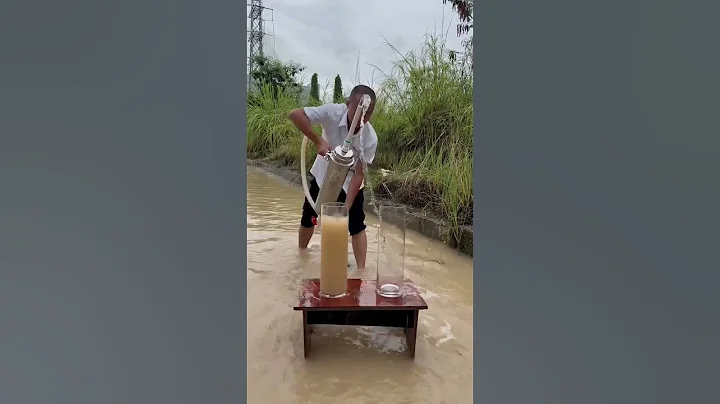Purified water, mineral water, distilled water, and drinking water, each claims to be beneficial to health. Which one is better to drink?

1. Distilled water
is made by distillation or other multi-layer filtration processes to remove harmful substances and microorganisms, but it also removes potassium, calcium, magnesium and other minerals needed by the human body.
In addition, there are certain risks hidden in this seemingly rigorous production process. Tap water contains cyanide and volatile phenol . These two substances are easy to volatilize. Production by distillation will concentrate the content of these two substances. During the distillation process, there may be risks if the method is not followed carefully.
For people with kidney stones, it is better to choose mineral-free distilled water, but for healthy people, it is not recommended to drink too much distilled water.
one sentence summary: has no minerals, but may have cyanide and volatile phenols.
2. Direct drinking water

Direct drinking water refers to drinking water or water that meets the sanitary standards for drinking water as the water source. It has been purified by primary filtration, fine filtration, reverse osmosis filtration, sterilization, etc. and is available for direct drinking. .
Through the filtration of direct drinking water equipment, the toxic and harmful heavy metals and most of the organic pollutants in the water will be removed. However, while the impurities are removed, about 90% of the trace elements in the water will be filtered out.
Several levels of pre-filters are installed on the front end of various water purifiers. Common ones include PP cotton filters, activated carbon filters , etc. Water filtered through a home water purifier generally has a good water purification effect in the first few weeks. However, the worse the water quality, the more serious the secondary pollution. If it is replaced only after three months, it has become a dirty water purifier. It is recommended to replace it every 1 to 3 months. pp cotton and activated carbon.
summary in one sentence: can be drunk directly, but it is easily contaminated during the filtration process.
3. Purified water
purified water is made from water that meets the sanitary standards for drinking water as raw material, through ion exchange, reverse osmosis and other production processes. On the one hand, it filters out harmful substances in the water; on the other hand, it also filters out minerals and trace elements that are beneficial to the human body.
has low ion content, low water hardness, and almost no minerals. Using it to boil water will not form scale, but long-term drinking may cause a lack of trace elements, reduce human immunity, and increase the risk of cardiovascular and cerebrovascular diseases.
It should be noted that people who exercise a lot and sweat a lot, such as athletes and steel workers, should not supplement a large amount of purified water because they cannot absorb a variety of trace elements from it.
One sentence summary: is clean but lacks nutrients. It is not recommended to drink it for a long time.
4. Mineral water

naturally gushes out from deep underground or is collected by drilling. After years of filtration, purification and activation at the bottom, it is rich in minerals and has a high absorption rate by the human body.
Since mineral water contains a lot of minerals, excessive drinking will cause these mineral salts to stimulate the kidneys and bladder, increasing the burden on the kidneys and bladder. Therefore, patients with chronic nephritis, high blood pressure, heart disease and edema should not drink mineral water for a long time.
One sentence summary: is rich in minerals, but some people should not drink it.
5. Boiled water
From a health point of view, boiled water is currently considered the most suitable drinking water for human body needs. It is clean and sterile. After boiling, the water quality and water hardness are improved, and an appropriate amount of minerals are preserved. It is the most economical and healthy drink. It contains no calories and can be directly absorbed and utilized by the body without digestion.
is summarized in one sentence: is the safest and most reliable, five-star recommendation!

[Summary]
1. It is better for normal people to drink boiled water and mineral water every day.
Mineral water contains minerals needed by the human body, which can supplement the needs of the human body. It is more suitable for normal people than pure water. Boiled water easily enters cells through the cell membrane, promotes the body's metabolism, enhances the body's immune function, and improves the body's disease resistance. It is the drinking water that best meets the needs of the human body.
2. Do not drink the same type of water for a long time, especially pure water.
People of different ages should drink water with different mineral contents. For example, water containing metasilicic acid is better for the cardiovascular system of the elderly, but is not suitable for children. For kidney stone patients, it is recommended to choose mineral-free purified water or distilled water.
[Tips for drinking water]
1. Do not use drinks instead of water
Especially for children, obesity, and people with underlying diseases, it is not good for health. Natural drinks such as tea and coffee can replace water to a certain extent, but this should vary from person to person.
2. After boiling the water, let the chlorine evaporate
Tap water has been chlorinated and disinfected. The chlorine combines with the residual organic matter in the water to produce halogenated hydrocarbons , chloroform and other compounds. After the water boils, you can open the lid of the pot, turn down the heat and continue boiling for 2 to 3 minutes. This can promote the evaporation of "residual chlorine" and some harmful substances in the tap water.
3. The water dispenser must be cleaned and disinfected regularly
When drinking bottled water, you must pay attention to the problem of secondary pollution. The water dispenser must be cleaned and disinfected regularly. If you find cleaning troublesome, you can buy a pressure pump to directly press the bottled water out and drink it. Drink the water after opening as soon as possible.
4. Don’t boil the water in the water pipe directly to drink it in the morning.
In the morning, you need to let the water in the water pipe for a while before you can boil the water for drinking. When choosing a faucet, pay attention to the problem of excessive lead. Copper faucets are more likely to have excessive lead, so it is best to use stainless steel.
(Source: Beijing Xicheng Disease Control and Prevention (ID: bjxccdcweixin) Copyright belongs to the original author. I would like to express my gratitude)





















